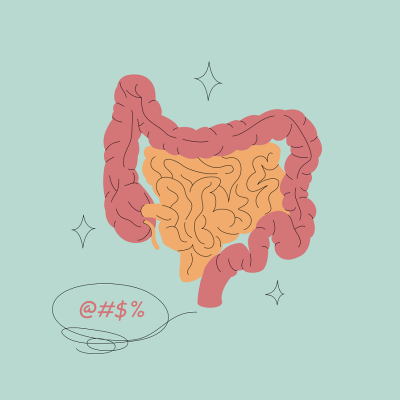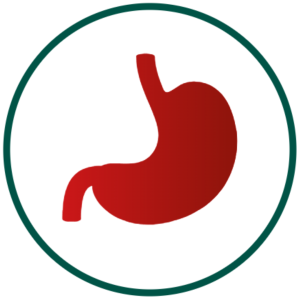29/04/2022
Indigestion, heartburn, nausea, and stomach pain are common digestive complaints. Studies have shown that as many as 40% of the UK population suffer from at least one symptom of a digestive problem at any one time and can have a negative impact on your day to day routine. Whilst many of us experience indigestion from time to time, for some, this can be a sign of an underlying problem within the stomach. Understanding how to improve your gut health is vital.

Why does your digestive health matter?
A healthy digestive tract is essential for the digestion and absorption of nutrients from the food and drink we consume. The stomach produces acids and enzymes that help to breakdown foods into smaller nutrients, making them easier for the body to absorb. According to research, up to 70% of our immune system is located in the gut. These nutrients are essential to normal function, our immune system, and staying healthy.
How do I know if I have a healthy digestive system?
Various factors can affect digestion and the absorption of nutrients, including damage to the lining of the stomach caused by gastritis (inflammation) and H. pylori infection, and conditions affecting the bowel, such as coeliac disease and inflammatory bowel disease (IBS).
These conditions affect the function of the stomach and bowel, increasing the risk of vitamin and mineral deficiencies and, although less common, can increase the risk of stomach and bowel cancer.
Signs that you may have an issue affecting your digestive health include:
- Indigestion or heartburn
- Nausea
- Stomach pain or discomfort
- Bloating
- Change in bowel habits, constipation, or diarrhoea
- Unexplained tiredness

How to improve your gut health
Get tested!
Our non-invasive digestive health test measures 7 biomarkers to provide an indication of your stomach and bowel health. Tests include:
- Stomach Health
- pylori antibodies
- Gastrin-17
- Pepsinogen I (PGI)
- Pepsinogen II (PGII)
- PGI / PGII Ratio
Analysing these results in combination helps assess your risk of gastritis (inflammation of the stomach), stomach ulcers and stomach cancer, and provides a comprehensive overview of your gut health.


Improve your diet
Stay hydrated – It is important to drink plenty of fluids, especially water to support your digestion and the breakdown of foods. Try taking a glass of water before each meal.
Eat fibre – Foods high in fibre benefit gut bacteria and also help to avoid constipation.
Keep active – Regular exercise can help your digestive system to move things along. One study found that a walk after eating reduced digestive time by up to 30%.



